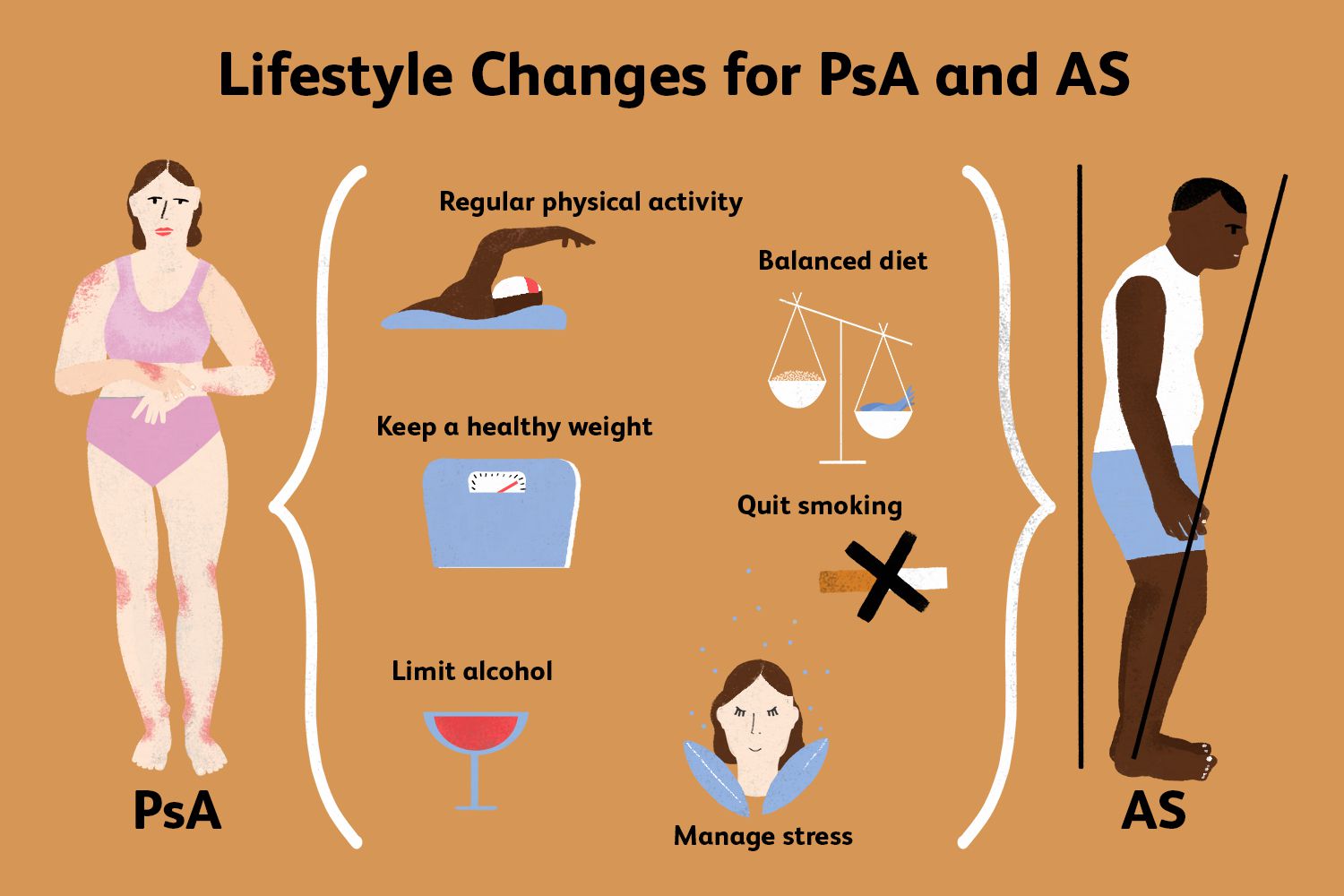Dhealthwellness.com – Psoriatic Arthritis consists of a number of symptoms. They can occur gradually over a period of time, or suddenly. The symptoms may involve just one joint or several. Not all patients will experience all of them. Psoriatic arthritis usually affects the fingers and toes, as well as the backbone and the ligaments and connective tissues. The most severe form of the condition is called Arthritis mutilans, which can affect joints and make movement difficult.
Psoriatic Arthritis Can Also Cause Spondylitis
Symptoms of psoriatic arthritis include foot pain, plantar fasciitis, and Achilles tendinitis. Some patients also experience pain in the lower back. In some cases, psoriatic arthritis may also lead to spondylitis, a form of the disease characterized by inflammation of the joints. Inflammation of the eyes, or iritis, is also associated with psoriatic arthritis. Treatment with corticosteroids can alleviate the inflammation and prevent blindness. Additionally, aortic valves may become leaking, which can lead to serious problems.
As the symptoms of psoriatic arthritis may vary from one person to the next, a doctor may recommend a particular treatment option for each patient. The type of treatment chosen will depend on the severity of the disease at the time of diagnosis. The goal is to achieve remission. In some cases, the medication is changed over time to maintain control and minimize systemic effects. Early indicators of severe psoriatic arthritis include onset at a young age, multiple joints, and spinal involvement. Skin control is also essential for managing the disease. Rheumatology and dermatology specialists may prescribe medications.

PsA is similar to regular psoriasis in appearance and can cause joint pain and stiffness. The joints may be sore, so pain may be intense that it limits activity. In addition to joint pain, PsA can cause swelling and enthesitis, an inflammation where ligaments and tendons attach to the bones. Enthesitis can affect the heel or the bottom of the foot.
Prescription Drugs Can Help Control Inflammation
Although there is no cure for Psoriatic Arthritis, treatments for the condition are focused on controlling the inflammation in the affected joints and the inflammation associated with the skin. Prescription medication, including corticosteroids, can help control inflammation and relieve the symptoms. NSAIDs, which are used to treat mild inflammation, can be used as well, although the long-term use of these drugs can have adverse effects.
As the disease progresses, medications and lifestyle changes must be implemented. A diet low in Fodmap food items may help with symptoms of psoriatic arthritis. Limiting the intake of persimmons, watermelon, artichokes, rye, and legumes may also help. It is also recommended that you limit your intake of fructose-rich foods like bananas and pears. A diet high in polyols, which are found in cauliflower and broccoli, may be useful.

One of the most common forms of Psoriatic Arthritis is called arthritic polyarthritis. About 5% of people with psoriatic arthritis will experience a type of this condition. The symptoms of Psoriatic Arthritis include joint stiffness, scaly patches, and pain in the joints. In severe cases, the inflammation can cause deformities in joints, such as fingertip ankylosis.
Psoriatic Arthritis Symptoms and Treatment Options
The National Psoriasis Foundation, an organization devoted to educating people with PsA, has launched PsA Action Week, a series of webinars aimed at providing patients with information and concrete ways to improve their lives with the disease. The website will also provide patients with psoriatic arthritis symptom information and treatment options. By sharing information about PsA with the public, the NPF hopes to educate patients and the general public on the symptoms of the disease and how to treat it.
The most important way to determine if you have psoriatic arthritis is to consult a doctor. PsA is a chronic disorder that affects the joints in your hands and feet. In many cases, it starts in childhood. Genetics play an important role in the development of PsA. If you or a family member has PsA, you’re more likely to develop it. PsA is a progressive disease that can affect your joints for life.

Injectable biologic medication called Secukinumab is one of the treatments for psoriatic arthritis. It works by binding to a chemical messenger called interleukin-17. However, it comes with serious side effects. Some patients have reported diarrhea, nausea, and headaches after using this medication. In addition to DMARDs, physical and occupational therapy and massage therapy can provide relief.
Reference:
